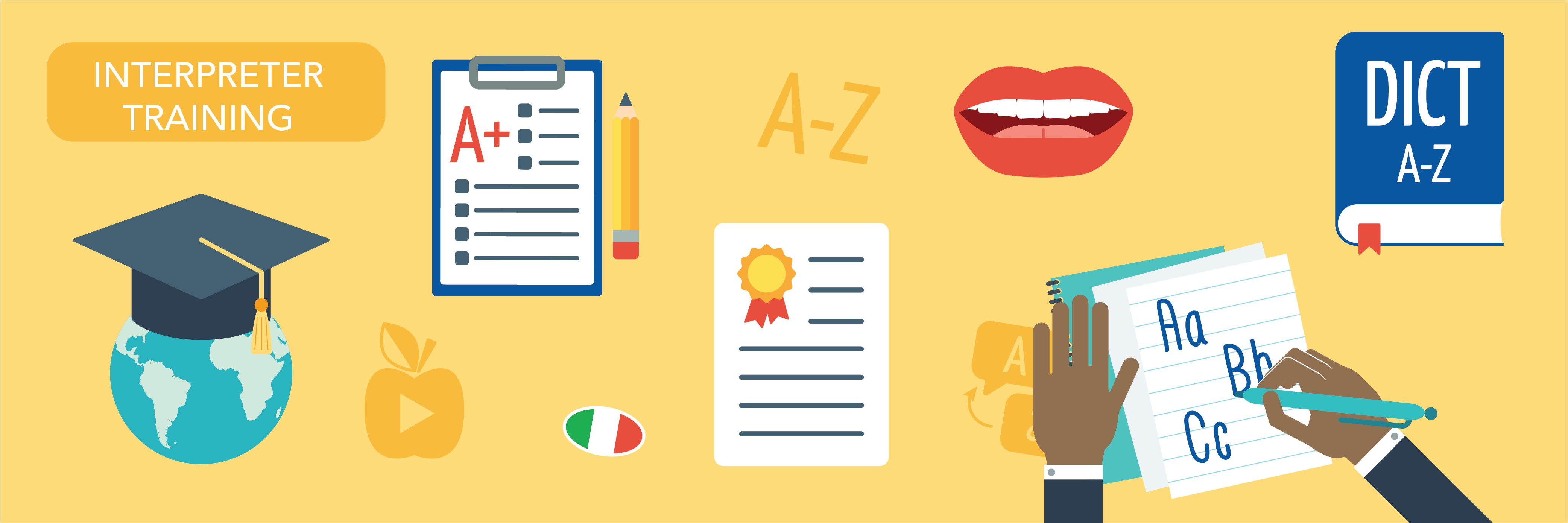
How do you say “shunt” in Spanish?
Where do you stand in an interpreted session?
How do you get the social worker to pause so you can interpret what she said?
What does it mean to be “transparent?”
What should you do if your patient tells the doctor he never drinks, when everyone in your community knows he’s a drunk?
What if a patient coughs in your face, and it turns out she has tuberculosis?
What if your patient dies?
Healthcare interpreting is full of hard situations. Some involve difficult terminology, while others involve difficult circumstances. Jumping into such situations cold is not only difficult for the interpreter, it leads to serious problems for the providers and patients. If you’re going to be an interpreter, wouldn’t you rather go in prepared?
There are really 6 good reasons to take a basic class in community interpreting before starting to work in the field.

Reason #1: To embark on a new career.
Whether you choose a career in community interpreting or later branch out into translation or conference interpreting, an introductory course in community interpreting is a great place to start. With this solid foundation, you can begin to take jobs as a freelance interpreter, work for a remote interpreting company or apply for a position as a staff interpreter at a hospital or social service agency.

Reason #2: So you know what you’re doing.
The first and best reason to get training is so that you can do a good job. A basic course on community interpreting will teach you about:
- the interpreter’s role and scope of practice,
- how to accurately convert meaning from one language to another,
- specialized terminology,
- interpreting techniques and accepted protocols, and
- interpreter ethics and how to handle hard situations.
In addition, there will be opportunities to practice everything, so that when you go to your first assignment, you’ll be confident in knowing exactly what’s expected of you and how to do that job well.

Reason #3: To meet other interpreters and develop a circle of professional colleagues.In an interpreter training program, you’ll get a chance to meet others who share your language pair. You’ll learn together, forming a bond that will likely endure beyond the last day of class. Here are the folks you can call later with questions, people who will understand what you do and why. Who knows what new friends you may make?

Reason #4: To differentiate you from untrained “interpreters” when you apply for jobs.
When you go look for a job, being able to say that you’ve had 60 hours of basic training will really set you apart from other candidates. What hospital or agency wants to send out someone who has no clue, when they could have a real professional representing them instead?

Reason #5: To be eligible for national certification.
Did you know that you must have at least 40 hours of basic training before you are allowed to take either of the two national healthcare interpreter certification exams? That’s right. The developers of the certification exams – interpreters themselves – knew that you can’t test all the knowledge and skills that an interpreter needs. So in addition to the test itself, nationally certified healthcare interpreters must show that they’ve had basic training.

Reason #6: It’s fun!Seriously! The Community Interpreter International as taught at Valley Community Interpreters is full of discovery, exercises, discussions, role plays and practice. When I teach this course, one of the most common things I hear from participants is, “I thought this would be boring, but now I wish this class would never end!” Nobody is bored, that’s for sure.
So there you go; it’s your choice. Muddle through your interpreting assignments wondering what the heck you’re doing, or get some training so you are confident in your role, your knowledge and your abilities.
Oh, and by the way, the answer is “derivación.” But then, if you’d taken an interpreter training program, you’d know that.

![]()
![]()
![]()
![]()
![]()
![]()

